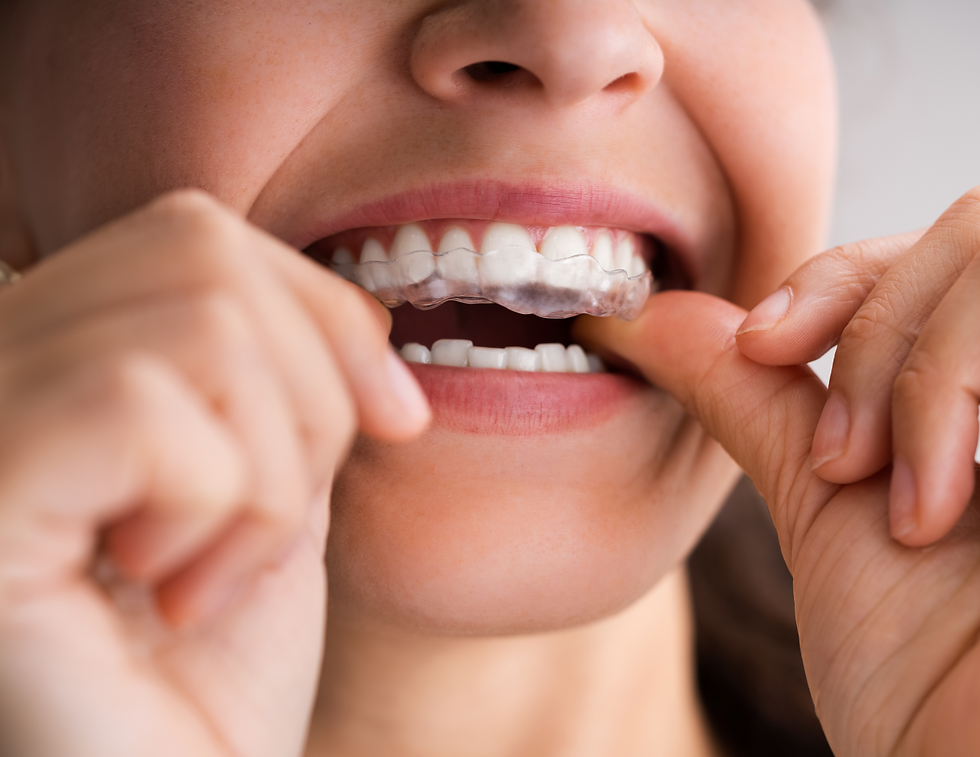When it creaks at night…
- Dr. Taoufiq Bensouda

- Oct 25, 2022
- 2 min read
Updated: Sep 21, 2024

Do you ever wake up from a night's sleep with pain in your jaw? Do you feel like your teeth are moving? Does your partner or children hear you cringe at night? You surely suffer from bruxism! Indeed, the phenomenon is very widespread in adults and young children.
The problem is that in addition to making a lot of noise, grinding can damage teeth and jaw joints.
Today your dental health expert sheds light on this phenomenon also known as bruxism.
What is bruxism?
Bruxism is characterized by involuntary grinding or clenching of the teeth when no swallowing, chewing, or speaking movements are performed. There are two kinds of bruxism: awake bruxism and sleep bruxism (SB).
What are the symptoms of bruxism?
The appearance of scratching and grinding noises of the teeth is, of course, the main symptom.
However, several other symptoms can be observed such as:
pain in the teeth and/or in the jaw
an impression that the teeth are moving
pain in the face or in time, especially when waking
up muscle pain extending to
the neck pain in the ears, ringing (tinnitus)
headaches
fatigue on rising since sleep is less restorative
What are the causes of bruxism?
You must first know that bruxism has not one but several origins which are sometimes difficult to define.
According to several studies, the main causes are of psychological origin such as stress, hyperactivity, and anxiety. Indeed, .teeth grinding is a subconscious way to release the stress accumulated during the day
Who is affected by bruxism?
As one of the main causes of bruxism is anxiety, children and young adults are among those most affected by bruxism. Frequent sleep bruxism occurs in about 13% of adults.
Is bruxism dangerous?
The main risk of repeated bruxism is that it will contribute to inflammation of the jaw muscles and premature wear of the teeth.
If the joints are affected and the bruxism is not alleviated, some patients will experience headaches and even migraines in some cases.
In the most serious cases, bruxism can become a real sleep disease since it can lead to heavy snoring and even episodes of sleep apnea.
In case of suspicion of bruxism, it is therefore important to consult a dentist quickly to avoid having long-term consequences.
Can my dentist help me?

Certainly! After the evaluation, the dentist may prescribe a gutter to the patient to limit teeth grinding. The gutter will prevent the teeth from grinding, therefore helping to rehabilitate the chewing muscles.
The patient can also consult an osteopath if he wishes to relax the muscles and therefore reduce the symptoms.
Sources:
Yap AU, Chua AP. Sleep bruxism: Current knowledge and contemporary management. Journal of Conservative Dentistry. 2016 Sep-Oct;19(5):383-9. doi: 10.4103/0972-0707.190007. PMID: 27656052; PMCID: PMC5026093. Available from: https://www.ncbi.nlm.nih.gov/pmc/articles/PMC5026093/



